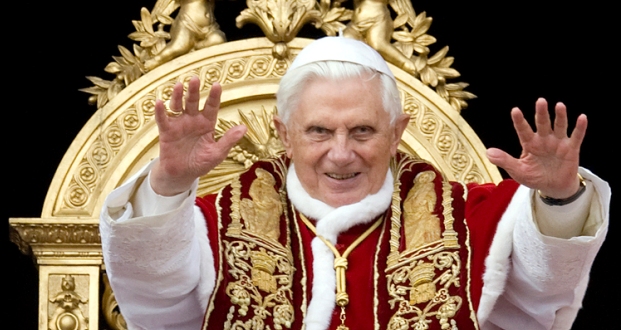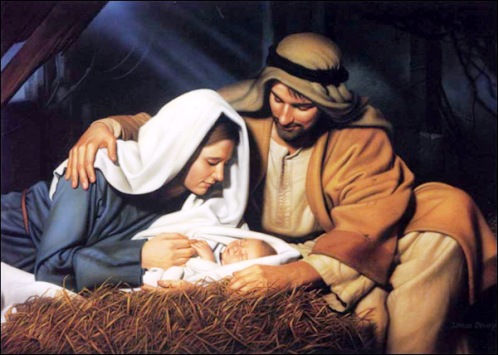Epiphany Challenges Us To Encounter The Living God.

This weekend, the Holy Roman Catholic Church celebrates the Feast of the Epiphany. What exactly is Epiphany? What does it mean?
Epiphany means revelation. It means a manifestation or an appearance. God’s desire is that every human being will come to know him. As such he’s constantly revealing himself to us. God is always trying to communicate his love to us, and it is not just a small select group of people that he is revealing his love to. He reveals his love to the whole world.
The Catechism Of The Catholic Church, in paragraph 27, tells us:-
27 The desire for God is written in every human heart because man is created by God and for God, and God never ceases to draw man to himself. Only in God will man find the truth and happiness he never stops searching for:
The dignity of man rests above all on the fact that he is called to communion with God. This invitation to converse with God is addressed to man as soon as he comes into being. For if man exists it is because God has created him through love, and through love continues to hold him in existence. He cannot live fully according to truth unless he freely acknowledges that love and entrusts himself to his creator.
It is God who made us with that desire, that hunger for him, and he constantly seeks ways to reveal himself to us so that we can encounter him and his love for us. That is what we celebrate at the Feast of the Epiphany – the Lord revealing Himself to us all and the ‘intended’ effects of his revelations. Now, I deliberately chose to use the word ‘intended’ to describe effect because we can alter the intended effect of something. For example, I am a musician, and as a musician, I wrote a really beautiful piece of music that is intended to soothe your heart and mind. But then someone takes that same piece of music, changes the beat, increases the tempo, introduces instruments that were not meant for this piece of music. The end result is that the initial intent of the piece of music has been changed. Now when God reveals himself to us, the intention is to draw us closer to him. All he wants is to be our Father and for us to be his children. You may not know this, but to God, you are a big deal.
So if God is God – and He IS – and he desires to draw us to himself, then what is the problem? We are the problem. Even though God made us for Him, to know Him, and even though we have the capacity, through human reason, to encounter God, we struggle to do this. Very often we reject God. Our ‘disordered appetites’, which is the consequence of original sin, makes encountering God quite a challenge.
In spite of the challenges that we as humans have with encountering and discovering God, it is he who constantly comes after us. The Catechism of the Catholic Church, paragraphs 51 and 52 tells us the following:-
51 It pleased God, in His goodness and wisdom, to reveal himself and to make known the mystery of his will. His will was that men should have access to the Father, through Christ, the Word made flesh, in the Holy Spirit, and thus become sharers in the divine nature.”
52 God, who “dwells in unapproachable light”, wants to communicate his own divine life to the men he freely created, in order to adopt them as his sons in his only-begotten Son. By revealing himself God wishes to make them capable of responding to him, and of knowing him and of loving him far beyond their own natural capacity.
I’ve mentioned it before – God’s desire is not to hide from us but to reveal himself to us. So therefore when we encounter God, when God reveals himself to us, it is almost impossible for us to keep this as a secret. Rather any true encounter with God is one that we will want to share with others. And so the whole Epiphany experience, the revelation of God, continues. This is precisely how Christianity spread in the early days. Jesus’ disciples encountered him and they, in turn, shared their experiences – God’s revelation of His Son, the Word Incarnate. This is how the Faith spread throughout the world.
The Bible is filled with examples of persons who encountered the love of God and could not keep it to themselves. One such example is from John chapter 4 – The Woman At The Well. Here we have someone who was living a rather sinful life. So much so that she chose a time of day to go to the well to draw water when no one else was expected to be there. On this fateful day, however, she encountered Jesus. She was surprised by his compassion since he knew all about her but never condemned her. Jesus did not treat her the way I suppose she had grown used to. Rather, she was moved by his tenderness. This story ends or rather comes to a climax with the woman in excitement, leaving all her water jars at the well and running back to the very people she was hiding from, and shared her encounter, her revelation of God with them. She told them, “Come and see a man who has told me everything I have done; could this be the Christ?” This brought people out of the town and they made their way towards him. (John 4: 29-30)
This incredible story continues,
Many Samaritans of that town believed in him on the strength of the woman’s words of testimony, ‘He told me everything I have done.’ So, when the Samaritans came up to him, they begged him to stay with them. He stayed for two days, and many more came to believe on the strength of the words he spoke to them; and they said to the woman, ‘Now we believe no longer because of what you told us; we have heard him ourselves and we know that he is indeed the Savior of the world.’ (John 4: 39-42)
That could be us! All of us who encounter the love and mercy of God are called to tell others of that love and mercy with the same zeal and enthusiasm as the woman at the well. It was this kind of faith that caused the early Church to grow like wildfire.
Let’s turn our attention to the Liturgy – the Gospel reading in particular. All the attributes of Epiphany are there. We will, however, look at two that are contained in Matthew 2: 11 – and going into the house they saw the child with his mother Mary, and falling to their knees they did him homage. Then, opening their treasures, they offered him gifts of gold and frankincense and myrrh. When we encounter God, when he reveals himself to us, we will worship him. We will acclaim Him as GOD, as ALL POWERFUL, as INFINITE. The Catechism Of The Catholic Church tells us in paragraph 2097, “The worship of the one God sets man free from turning in on himself, from the slavery of sin and the idolatry of the world.”
Secondly, like the Wise men who encountered Jesus and gave him precious gifts, we too will want to give gifts to Him. But what can we give to God? What can we give to him who does not need anything? The best gift that we can give to God is the gift of ourselves. How do we do this? Like Mother Mary. Give Him our hearts, our lives, our will, our dreams, our hopes, our everything. We do this by complete surrender to God and to his will. Mother Mary is a tremendous help in learning how to do this, since this is precisely what she did, and as a result, brought the Savior of the world into the world
Now I did say that there were two attributes of Epiphany that we would look at in the Gospel reading. Actually, there is a third. Matthew 2: 12 tells us that the Wise men returned to their country in a different way. When we encounter God; when God reveals himself to us, we will not be the same. We will return to our homes, our schools, our places of work, etc, as different people transformed by the love of God. We will be changed.
Prayer
Heavenly Father, we ask you to please remove fro our lives, every obstacle in our lives that are preventing us from seeing you as you are. Let the light of Your Glory shine upon us. Cause our hearts to be opened and submit to the light of your glory. Through our Lord Jesus Christ Your Son, who lives and reigns with you, in the unity of the Holy Spirit, one God forever and ever.
AMEN.






